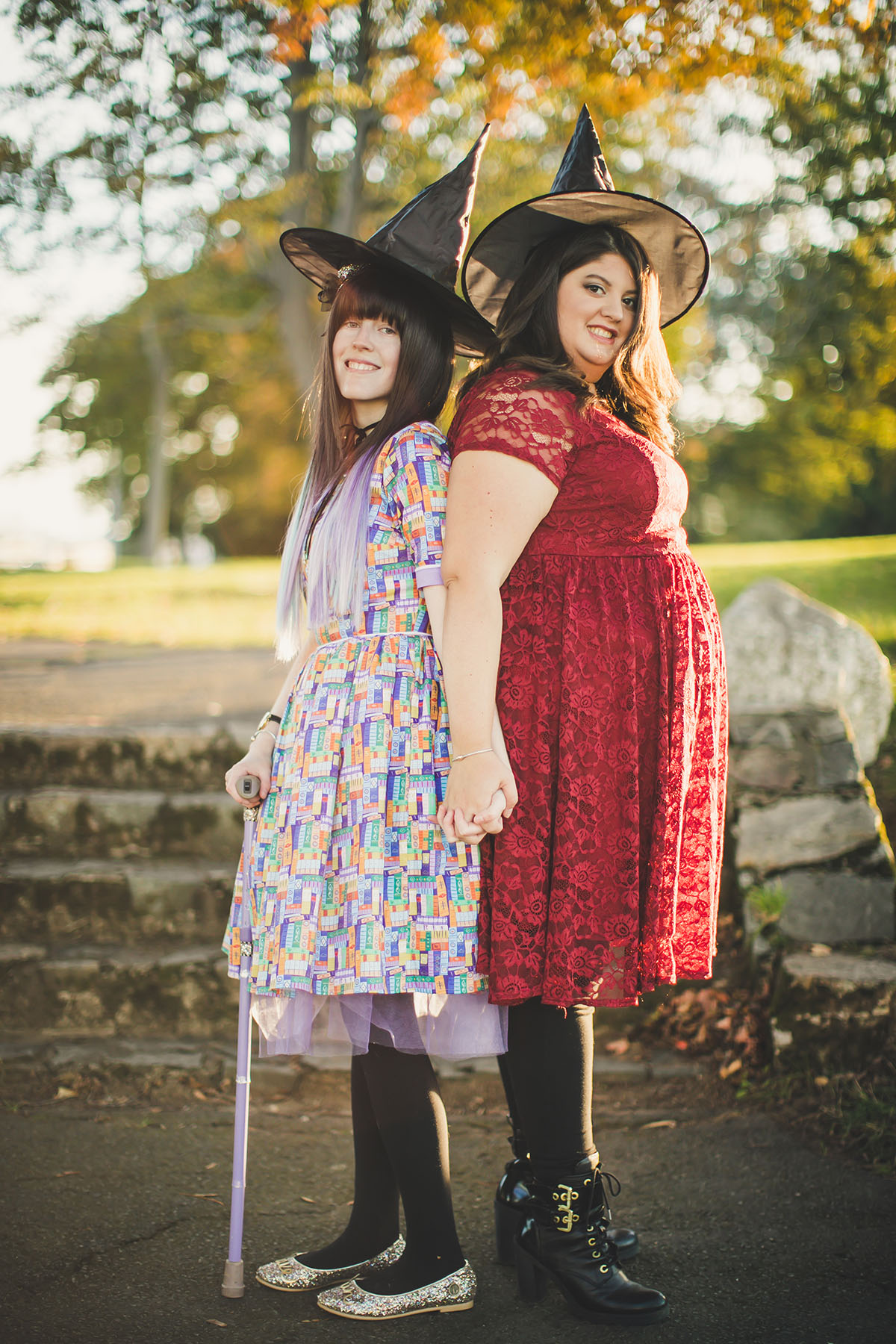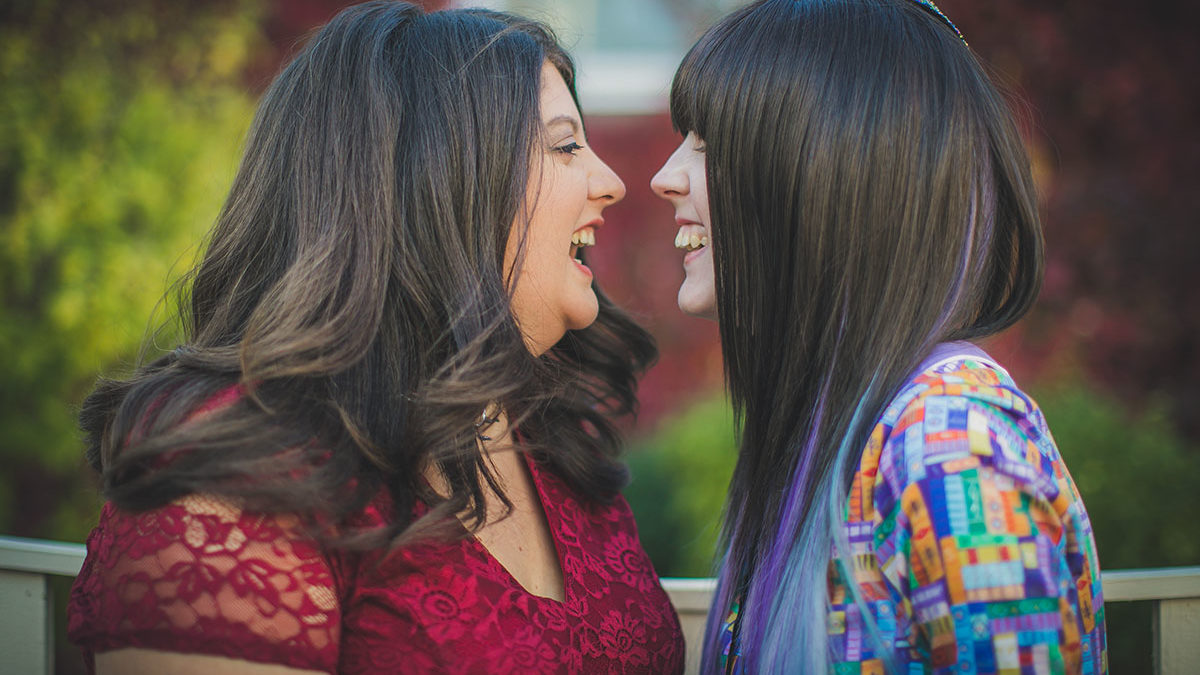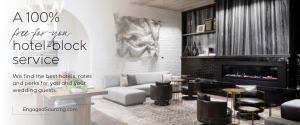I never imagined walking down the aisle with my cane.
Even though I’ve had disabilities since I was a kid, primarily Ehlers-Danlos syndrome and autism, I didn’t factor any mobility aids into my wedding. A part of that is because I’ve never seen anyone like me in media, a queer person with a disability. I’ve never seen a queer couple get married onscreen where one of the partners rolls down the aisle in a wheelchair or adjusts their hearing aid before they say their vows. While it’s true that not all disabilities are visible (mine isn’t always), it’s rare that I’ll see a picture of an LGBTQ+ couple with disabilities at all.
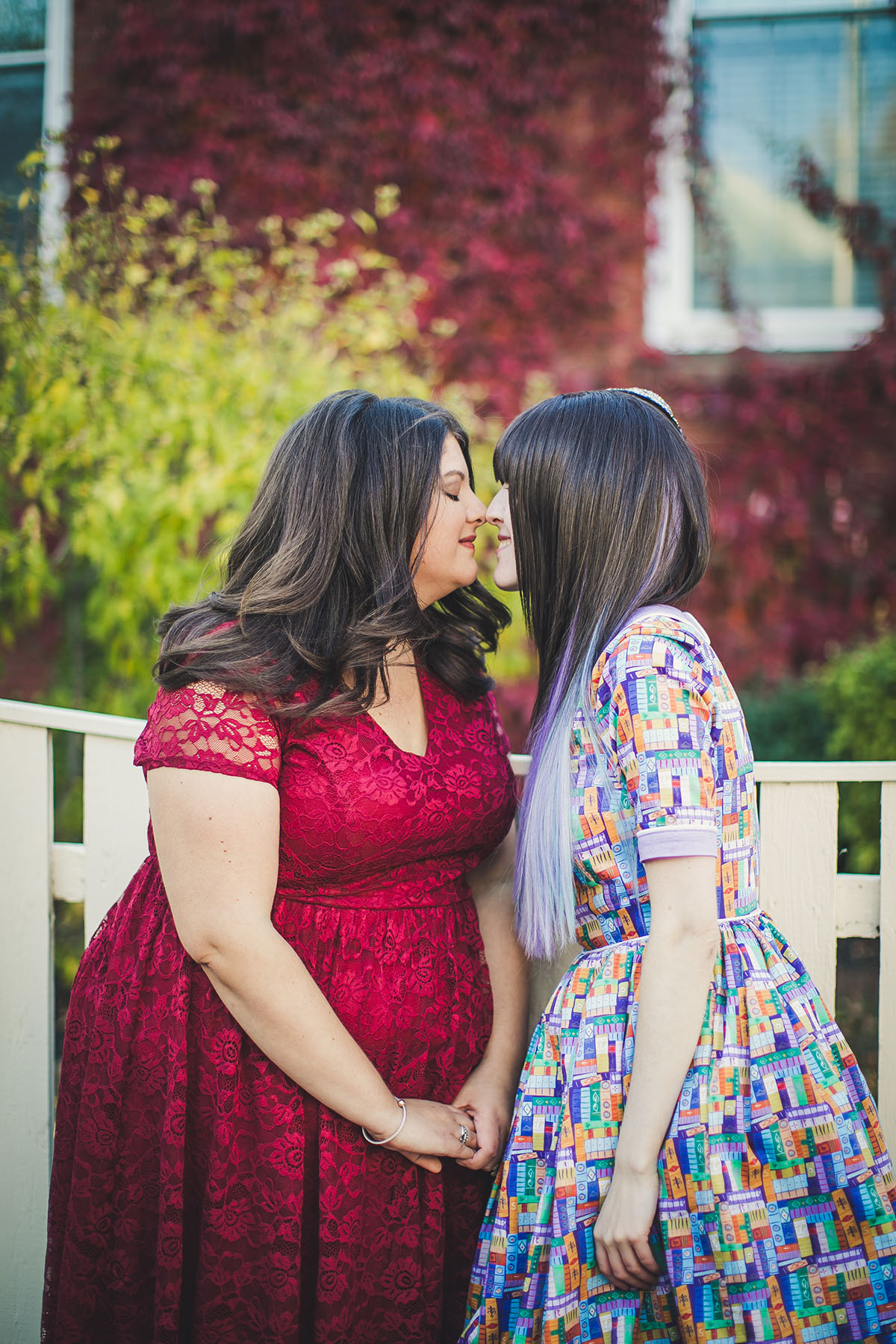
My fiancée Macey was there when I picked out my first cane two years ago, after several years of progressing Ehlers-Danlos symptoms like pain, fatigue and difficulty with coordination. I remember posing with my cane inside our apartment. “Am I still sexy?” I asked. “Does this look cute with my outfit?” I chose a bright lavender cane that would show off my vibrant personality and wrapped it in decorative glitter and named it after a fictional character. Macey walked with me around Boston while I practiced taking the train and dealing with pedestrian traffic as a cane user. She listened to me complain about men who wouldn’t get out of my way on the street. She helped me realize that I’m still me when I have my cane and now I see it as a part of me that I’m proud of.
In the past almost ten years that Macey and I have been together, we’ve learned a few things about being in a mixed-ability relationship that we’re applying to wedding planning.
Our access needs are different and we experience the world differently, but we’re on the same page about one thing—we love each other unconditionally.
Planning a wedding as a queer disabled person is a lot of forging your path and figuring it out on your own.
Macey and I are constantly asking venues about accessibility, not just for me but for our friends with disabilities who we’ve built into our community. I’m worried about every menu: Will I be able to find something I like on it, given my medical dietary restrictions? Will my friends and family? How big will the bathrooms be? Are there are narrow or rocky paths, since Macey and I want to get married outside? Will any of the vendor staff patronize me or my guests? We’re creating our own list of what’s important because many wedding planning apps and guides don’t include questions about accessibility or LGBTQ-friendliness. It’s a learning experience and we’re creating the inclusive wedding of our dreams together.
RELATED: I PROPOSED TO MY HIGH SCHOOL SWEETHEART—HERE’S HOW WE MAKE IT WORK
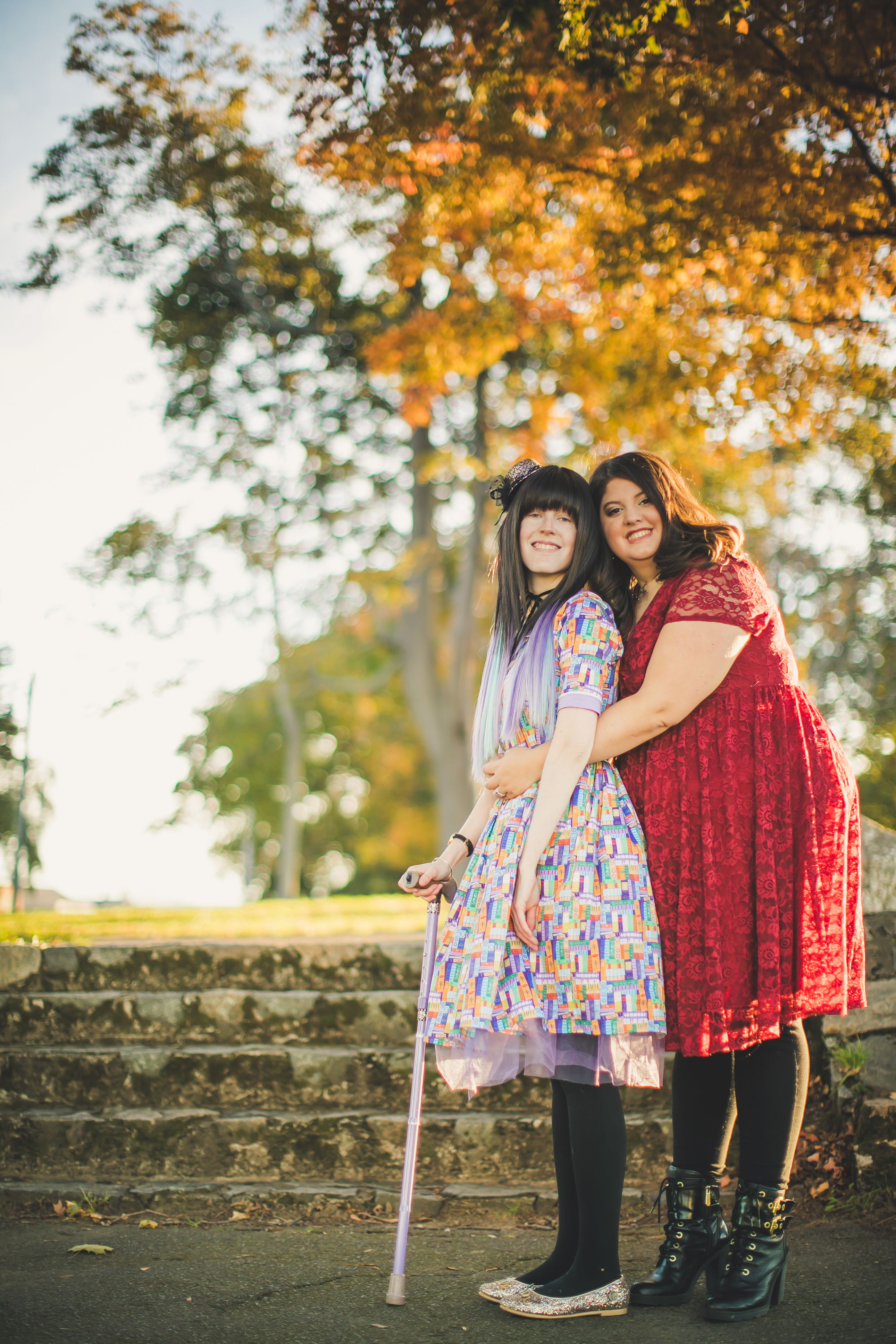
Even though I’m disabled and she isn’t, that doesn’t automatically mean she’s always taking care of me.
When I’m working remotely, I take breaks to make calls to vendors. I planned our engagement photos because Macey works at a university in a people-centric role where she’s often talking to people face-to-face or over-the-phone. When I’m in too much pain to do wedding research, she takes over and makes a detailed list for me to look over. Every day, we’re finding ways to take care of each other. It’s all about having a balanced relationship where we’re each taking on our fair share of the emotional labor.
There are days when I’m too exhausted to do much outside of work and I don’t have the energy to email vendors with questions or make a list of potential photographers. The nature of Ehlers-Danlos means that winter is difficult for me, and I’m already thinking ahead to the many next steps we need to take in wedding planning. As an editor for Equally Wed who works from home, I support her with expert advice and the flexibility to sign for our wedding rings when they come in the mail. Macey supports me in her active allyship to the disability community, valuing me exactly as I am. People might assume she’s my caretaker because of ableist misconceptions, but we have an equal and happy partnership.
Accessibility is a top priority.
One of the first questions I ask venues about is accessibility. It’s even more important to me than if they have my first choice wedding date available. I’m not going to book a wedding venue that requires all guests to walk down a winding staircase (as visually stunning as that would be). If there aren’t accessible bathrooms, it doesn’t count as accessible. If the venue acts like anyone’s access needs are optional, it doesn’t count as accessible. I want to get married somewhere I can confidently say all my guests and I will enjoy ourselves and feel at home.
RELATED: 7 REASONS I WANT TO MARRY A READER
Learning to love my disability is an ongoing process.
I grew up thinking that I might never get married because any prospective partner would see me as a burden. I worried that I’d be unattractive if I used mobility aids, and even refused them when I was a kid. I can’t imagine how my cane will look in my wedding photos because I’ve never seen a couple like us in any albums I’ve looked through.
Thanks to the disability community, I’m learning to love myself as I am. Keah Brown’s #DisabledAndCute was one of the first times I posted photos of myself with my cane online and drew attention to the fact that I have a physical disability. It takes daily work to unpack the internalized ableism I have about my body and how it works, and it’s definitely harder on days when my symptoms are in full force. But I make time for radical self-love, learning about disability justice, spending time with disabled friends and talking to Macey about my feelings so I can live each day loving myself fiercely.
Love and respect are at the center of everything we do.
Macey doesn’t know exactly what it’s like to navigate a cobblestone Boston street with a cane, but she’s willing to listen and empathize. She never makes assumptions about how I’m feeling or what I’m able to do. Whatever we’re doing, we support each other, whether it’s her helping me decide how I’ll dress up my cane for the wedding (and how much of the wedding I want to use it for) or me sitting down after she had a particularly tough day at work to give her a back massage. Our access needs are different and we experience the world differently, but we’re on the same page about one thing—we love each other unconditionally. And we’re absolutely in this together.
We have fun with it.
As challenging as planning a wedding (and a life) with a disability can be, we also make time to have fun. I don’t want the wedding planning process to stress us out so much that we’re not even excited to get married. We’ve had to navigate finding accessible housing, making sure I have access to health care and splitting up household chores with a mobility impairment, and we’ve managed to do it all with laughter and imagination. When I want to deck out my cane in glitter or turn a venue viewing into an impromptu iPhone Portrait mode photo opp, Macey is right there beside me.
If I’m going to walk through this life with my cane, there’s no one else I’d rather have walking next to me.
If you have a disability, chronic illness or mental illness and want to write about your experiences for Equally Wed, please pitch us at info@equallywed.com! We look forward to reading your submissions.
